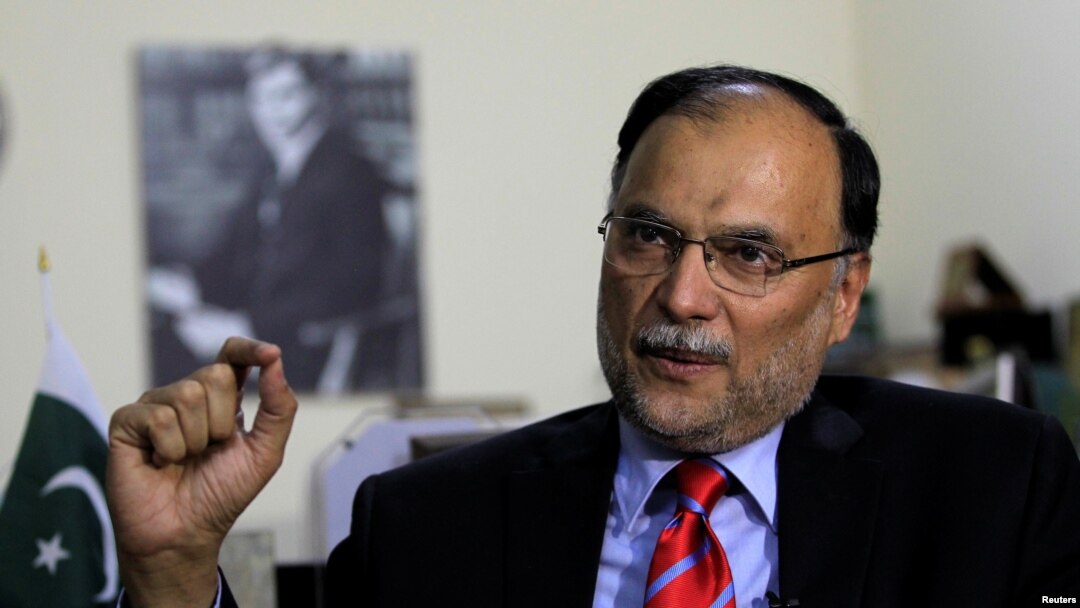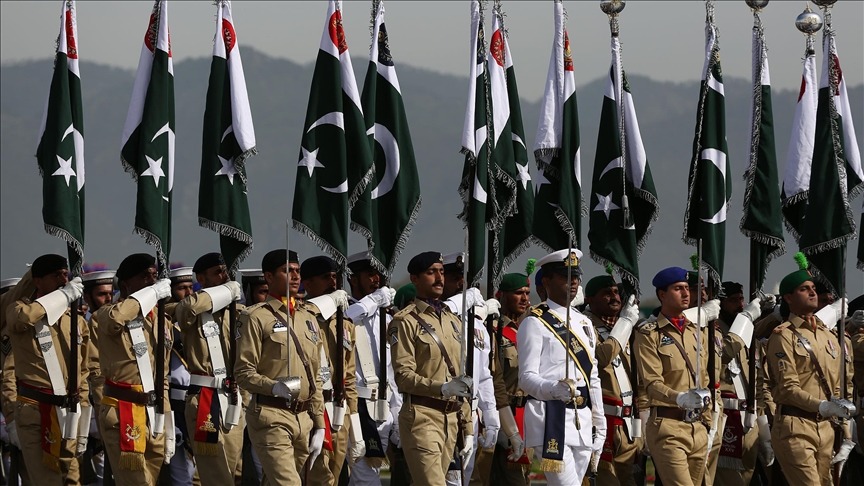ISLAMABAD (PNP Special Report) – The Prime Minister of Pakistan Mian Shehbaz Sharif has finally accepted the resignation of the Deputy Chairman of the Planning Commission Dr. Jahanzeb Khan and the Federal Minister for Planning, Development & Special Initiatives Prof. Ahsan Iqbal has been appointed to hold the office of Deputy Chairman of the Planning Commission with immediate effect.
Undoubtedly, Ahsan Iqbal has played a significant role in the China-Pakistan Economic Corridor (CPEC) project. China has openly declared Ahsan Iqbal as CPEC hero on various occasions. The Pakistani Minister has been a strong advocate for the megaproject, calling it a “milestone of friendship” between Pakistan and China as well as a game-changer for the entire region. He has been a key figure in shaping Pakistan’s approach to the CPEC project, pushing for its success while also addressing challenges and concerns.
“Through media reports, it was very clear that there was a fierce power struggle going on between Ahsan Iqbal and the former Deputy Chairman Planning Commission since the formation of this government and it was also clear that one side or the other had to quit,” Dr. Mohammad Arif, Editor of Nihao-Salam Network (NSN), Pakistan’s 1st Islamabad-based Chinese language News Agency, stated while expressing his views.
According to him, the power struggle in the Planning Commission was affecting all the development projects of Pakistan, but the most affected project was certainly the CPEC. “It may be a minor office tussle which is found in more or less every institution, but the effects of the power struggle of the Planning Commission also reflects the entire country’s socio-political arena and indicates the obstacles in our national development journey,” he further said.
“If we look at the working of the Ministry of Planning, its most significant department is the Planning Commission, which oversees all the technical affairs of the Ministry, plans, Central Development Working Party, Economist Group and other important departments,” Bashir Chaudhry, a senior Pakistani journalist serving Saudi media house, stated, emphasizing that “All the board members of the Planning Commission also report to the Deputy Chairman.”
He was of the view that Ahsan Iqbal was feeling vulnerable due to lack of authority. Due to such situation, the news of Ahsan Iqbal’s resignation also emerged on the media. “Ahsan Iqbal has finally succeeded after fighting a battle of nerves for more or less six months and has got all his powers as a federal minister,” Mr. Chaudhry wrote in his news story.
“It is on record that Ahsan Iqbal has made significant contributions to the China-Pakistan Economic Corridor (CPEC) project,” Sabah Uddin Qazi, Editor-in-chief, Press Network of Pakistan, commented on the recent news regarding recent developments in the Planning Commission. Mr. Qazi, who was also part of Ahsan Iqbal‘s CPEC media team during his previous tenure, acknowledged that his dynamic leadership and remarkable vision have been instrumental in shaping the megaproject’s trajectory and ensuring its success.
Answering a question, he recalled his good old days with the Planning Commission, working under the supervision of Federal Minister Ahsan Iqbal, and summarized the top contributions of the Minister to the megaproject as under:
Top Contributions of Ahsan Iqbal to the CPEC
1. Strategic Vision
Ahsan Iqbal has been a key proponent of CPEC, recognizing its potential to transform Pakistan’s economy. He has consistently emphasized the project’s strategic importance, both nationally and regionally.
2. Infrastructure Development
Under his guidance, several critical infrastructure projects have been completed, including:
(i) Upgradation of the Karakoram Highway (KKH)
(ii) Construction of the Lahore-Abdul Hakeem Motorway (M-3)
(iii) Development of the Gwadar Port and Free Zone
These projects have improved connectivity, facilitated trade, and enhanced economic growth.
3. Energy Sector Reforms
Ahsan Iqbal has overseen significant investments in the energy sector, including:
(i) Establishment of power plants in Sahiwal, Port Qasim, and Karot
(ii) Completion of the 1,320 MW Sahiwal Coal Power Project
These projects have helped address Pakistan’s energy shortages and increased the share of indigenous fuel sources.
4. Industrial Cooperation
Ahsan Iqbal has promoted industrial cooperation under CPEC, leading to:
(i) Establishment of Special Economic Zones (SEZs) in Gwadar, Faisalabad, and Islamabad
(ii) Attraction of foreign investment in sectors like textiles, pharmaceuticals, and food processing
This has created jobs, stimulated economic growth, and enhanced Pakistan’s global competitiveness.
5. Gwadar Development
Ahsan Iqbal has been instrumental in developing Gwadar as a hub of economic activity, with initiatives like:
(i) Gwadar Smart Port City
(ii) Gwadar Free Zone
(iii) New Gwadar International Airport
This has transformed Gwadar into a thriving economic center, boosting regional trade and connectivity.
6. Environmental Considerations
Ahsan Iqbal has emphasized the need for environmental sustainability in CPEC projects, ensuring:
(i) Incorporation of green technologies and renewable energy sources
(ii) Implementation of eco-friendly practices in infrastructure development
This has helped minimize the project’s environmental footprint and ensured a more sustainable approach to development.
7. International Coordination
Ahsan Iqbal has played a crucial role in promoting CPEC globally, engaging with China and international partners, and securing investments. His efforts have helped build trust and confidence in the project, attracting foreign investors and boosting Pakistan’s economic credibility.
No doubt, the decision to empower Ahsan Iqbal as new Chairman of Planning Commission would further intensify his selfless contributions to CPEC in driving Pakistan’s economic growth, improving infrastructure, and enhancing regional connectivity. His leadership and vision would shape the CPEC project’s success, making him a key figure in national development journey.



